Dairy products: benefits and harms, what to replace and is it possible to abandon them completely?
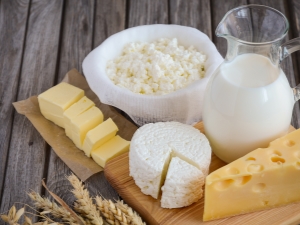
Many consumers are interested in what is the calorie content of dairy products, whether it benefits the body. Important issues are the presence of contraindications and the existence of an alternative for people with lactose and casein intolerance.
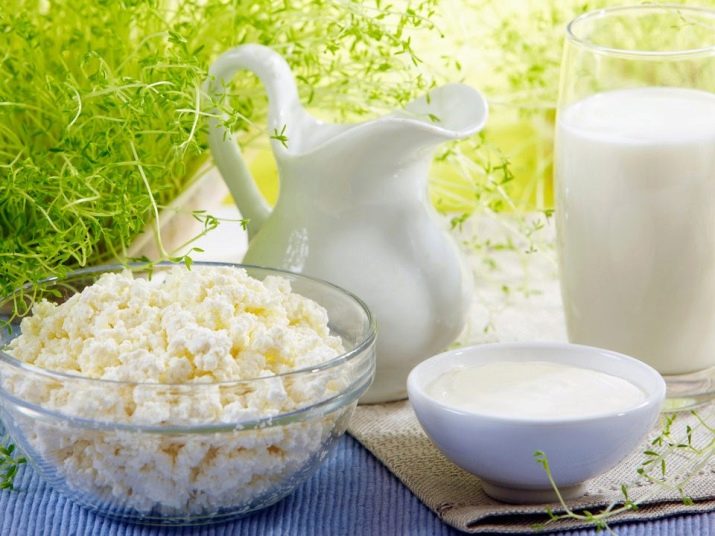
What applies to them?
Dairy products contribute to the normalization of vital human functions from infancy to old age. The product range is wide. The list of milk products includes ayran, acidophilus, cheese, butter, sour cream, fermented baked milk, curdled milk, varenets, yogurt, kefir, koumiss, buttermilk, matsoni.
Children of the older group and the elderly are advised to use natural sour-milk and fermented drinks: ayran, kefir, yogurt.
In the process of manufacturing such products, special enzymes are added that contribute to the proper digestion of food. Food outlets sell thermostatic products such as sour cream, fermented baked milk, and curdled milk. Their production takes place immediately in bottles, cups, bags using special chambers.
Overweight people prefer low-fat products: milk, cottage cheese, cream. Infant milk formulas are most often made from goat's milk, as it, unlike cow's, contains much less casein and more vitamins. Especially for children, they make milkshakes, biological drinks with the addition of bifidobacteria and vitamins.
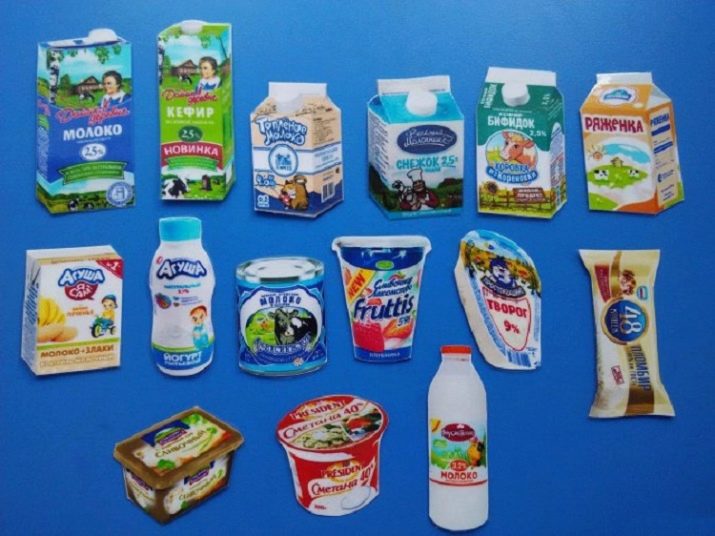
Composition and calories
Dairy products increase immunity, replenish the body with calcium.Enzymes promote protein clotting in flakes. The calorie content of milk directly depends on its fat content. Sour cream, butter, yogurt and yogurt have high calorie content.
There are few calories in fat-free products, which nutritionists advise overweight people to consume.
- Milk contains an average of 55 kilocalories per 100 ml. In a concentrated drink there will be 138 kcal, in a rustic one - 70. Usually cow's milk contains 2.7% casein, 3.5% fat, 0.15% protein. The abundance of minerals, vitamins, organic acids makes the drink nutritious.
- Cream contain lecithin, sodium, potassium, magnesium, calcium, iron, phosphorus, organic acids and a large amount of vitamins. The calorie content of the product can be from 8% to 35%. Accordingly, the kilocalories in it can be from 119 to 337, proteins - from 2.2 to 2.8, carbohydrates - from 3.2 to 4.5.

- Yogurt enriched with trace elements, calcium, phosphorus. It consists of milk and sourdough. 100 g of yogurt contains 5 g of proteins. The average calorie content is from 60 to 70. Sweet yogurt with 6% fat content with 5 g of protein and 8.5 g of carbohydrates contains 112 kilocalories.
- In kefir a lot of calcium, iodine, fluorine, copper, protein and vitamins. The fat content of kefir varies from 1% to 3.2%. In the presence of 3-4 g of proteins and 4 g of carbohydrates, the calorie content of kefir is 60-70.
- Ryazhenka per 100 g of the product contains from 40 to 55 kilocalories. The composition of BJU is as follows: proteins - 3, fats - 2.5, carbohydrates - 4.2.

- curdled milk contains 3 grams of proteins and carbohydrates. With a fat content of 1%, it contains 40 kcal, at 2.5% - 53 kcal, at 3.2% - 59 kcal, at 4% - 56 kcal.
- Sour cream rich in milk proteins and amino acids. It contains 2-3 g of protein with a fat content of 10%, 15%, 20%, 25%, 30%.Calorie content ranges from 119 kcal with a fat content of 10% (BJU - 2.5 / 10 / 3.9) to 381 kcal with a fat content of 40% (2.4 proteins, 2.6 carbohydrates).
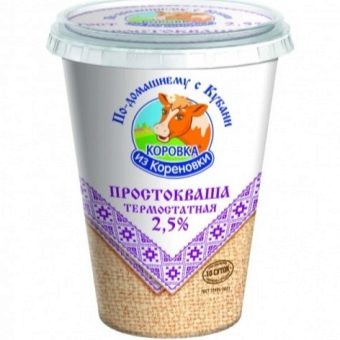
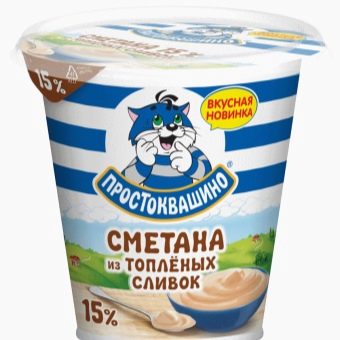
- acidophilus with a fat content of 1% to 3.2%, it contains 3 grams of proteins and carbohydrates, and has a calorie content of 31 to 59.
- Kumys saturated with magnesium, calcium, phosphorus, vitamins A, B, C, E, PP, D. 40 to 50 kilocalories per 100 ml of liquid. BJU - 2/2/5.
- In buttermilk contains a huge amount of vitamins: A, B, C, H, E, K. The composition of BJU is 3 g of protein, 3 g of carbohydrates and 1 g of fat. The calorie content is 40.
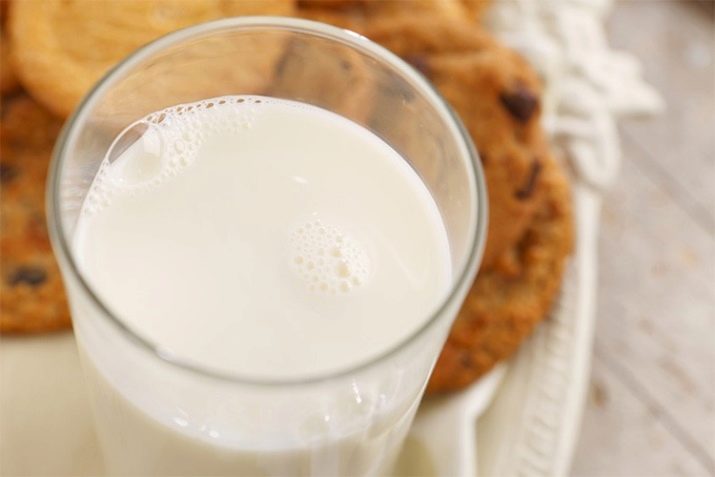
What are useful?
Dairy products contain in their structure unique organic compounds not found in any other product.
- Cottage cheese helps to strengthen the heart muscle and bone tissue.
- Yogurt removes toxins from the body, improves metabolism, improves the quality of hair and skin. It relieves some cardiovascular diseases, relieves a hangover.
- Kefir improves digestion.
- Ayran quenches thirst well, brings great benefits to the respiratory system of the body, has a positive effect on the work of the digestive tract, and prevents the exacerbation of inflammatory processes.
- Ryazhenka protects against osteoporosis and atherosclerosis, improves digestion, satisfies hunger, and improves immunity.
- Yogurt kills pathogenic bacteria, improves the functioning of the gastrointestinal tract, regulates metabolism, strengthens the immune system.

- Cream helps to strengthen nails, teeth, bones.
- Nutritious sour cream stabilizes appetite, helps to solve the problem of anemia, saves from sunburn, and has a positive effect on hormonal levels.
- Cheese helps to improve sleep, relieve stress, normalize blood pressure.The work of the digestive tract is normalized, appetite, skin and vision are improved.
- Low-calorie acidophilus is perfectly absorbed by the body. It prevents the reproduction of pathogenic microbes and the destruction of pathogenic bacteria, thereby contributing to the regenerative functions of the intestine.
- Koumiss is also easily absorbed by the body and helps to increase immunity.
- Low-calorie buttermilk is recommended for use on fasting days. It has a beneficial effect on the work of the digestive tract.

Milk is also of great benefit.
- Angina and colds are often preferred to be treated with warm milk. Its trace elements have bactericidal properties, contribute to the removal of accumulated radiation and toxins from the body.
- Calcium and phosphorus form the skeletal system in childhood and support it throughout life, protecting it from osteoporosis.
- Amino acids, fats, proteins have a sedative effect, contribute to the restoration of the body, so it is recommended to drink a glass of warm milk an hour before bedtime.
- Calcium and vitamin D improve vision and the immune system.
- Potassium regulates the work of vascular extensibility, normalizes blood pressure. Thought processes are activated.
- The product prevents cardiovascular, kidney diseases, tuberculosis and anemia.

Who are contraindicated?
The consumption of dairy products can harm the body of those who have an allergic reaction to lactose or casein. The body is not able to digest the product, as it does not have an enzyme that breaks down milk sugar. Milk causes discomfort, pain in the gastrointestinal tract, nausea, diarrhea, and bloating.
European residents suffer from lactose intolerance less frequently than Chinese, Indians and Africans. About 75% of the inhabitants of the entire planet (25% of the population of Europe) are not able to consume dairy products.
Some scientists believe that dairy products are harmful to the body of the elderly. Milk can contribute to the development of atherosclerosis, coronary heart disease, stroke and heart attack.
Other researchers blame synthetic additives on cattle feed. They believe that an environmentally friendly product does not lead to sad consequences.
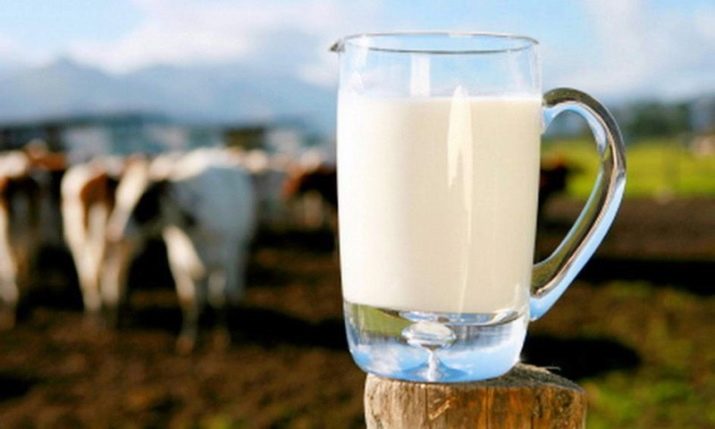
There are also some specific recommendations and cautions regarding certain types of dairy products.
- Purchased yogurt harms human health with flavors, preservatives and various fillers.
- Yogurt is not recommended in the presence of gallstones, ulcers, gastritis and acute hepatitis.
- The high calorie content of sour cream can harm children under one and a half years old, as well as those suffering from various types of gastritis and ulcers. The product helps to increase the acidity of the stomach. Emulsifiers and stabilizers added to sour cream by some manufacturers are harmful to the body.
- With excessive use of acidophilus, heartburn and discomfort may occur due to an increase in the acidic environment in the stomach.
- The high content of sugar and alcohol in koumiss can harm those with stomach ulcers, gastritis.
- Ryazhenka is contraindicated for people with an allergic reaction to milk protein, and it is also not combined with fish, eggs and meat.
- Buttermilk should not be consumed by people with lactose intolerance, ulcers and gastritis. The drink can cause bloating and create digestive problems.

Refusal of milk products
Some people absolutely cannot eat dairy products due to a negative reaction of the body: sensitivity to cow protein (casein), intolerance to milk sugar (lactose), allergic reactions. If you experience pain in the gastrointestinal tract, vomiting, diarrhea, the appearance of a skin rash, you should stop using all types of dairy products. They can trigger asthma and pneumonia.
People with casein intolerance are advised to replace cow's milk with a goat or camel drink.
Allergy sufferers with a reaction to lactose can use sour-milk substitutes for food, which are available in sufficient quantities on store shelves. But do not forget that soy protein, hydrogenated vegetable oil and other additives may not always provide health benefits.
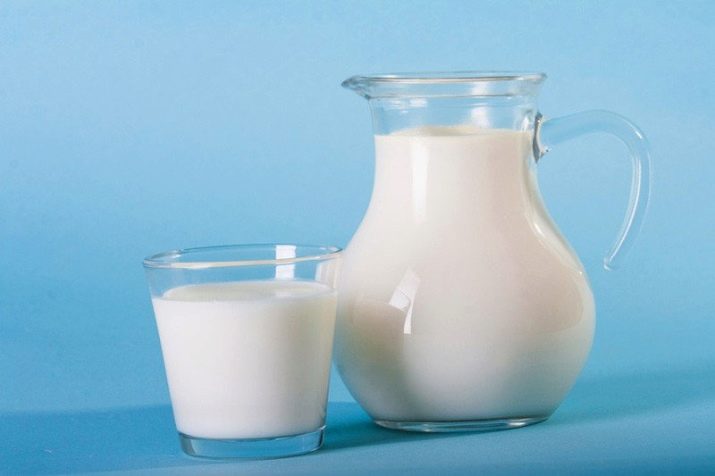
With lactose intolerance, you can replace milk with kefir, which improves vision and digestion, strengthens bone tissue, and serves as a preventive measure for many chronic diseases. It is recommended to drink it in the morning on an empty stomach or an hour before bedtime. Acidophilus can also be drunk instead of milk.
Judging by the reviews, allergy sufferers replace milk with fresh juice. Nuts, beans, leafy greens, fruits help them to provide the body with calcium. Some believe that people who are intolerant to the natural sugars found in milk are less likely to get ovarian, breast, and lung cancer. There is also an opinion that the complete rejection of milk leads to weight loss and an improvement in the digestive tract. However, there is no direct evidence for this.
Watch videos on the topic.


















You don't have to give up dairy. Better replace it with Nemoloko and there will be no problems. The body will receive useful vitamins and dietary fiber.